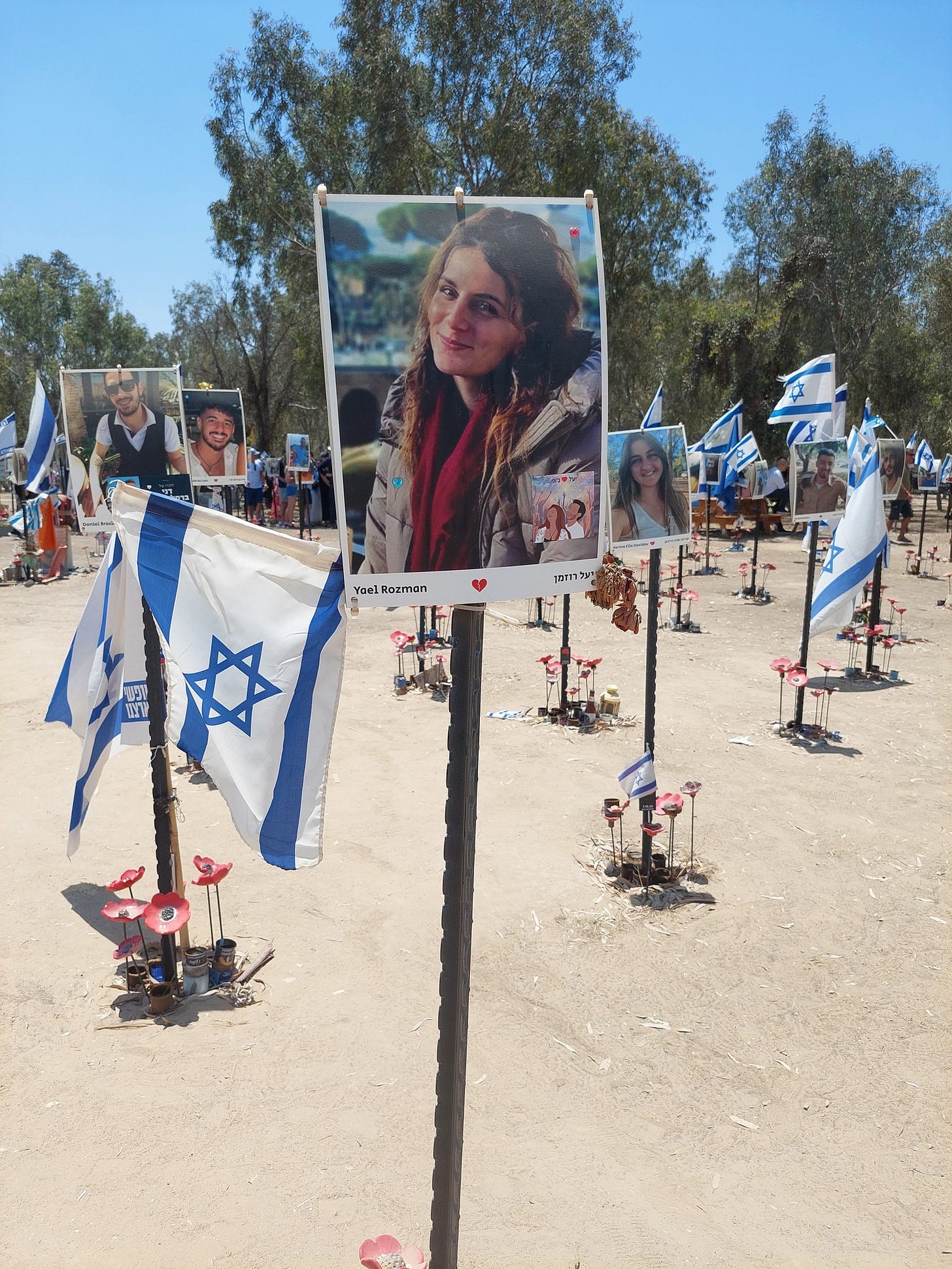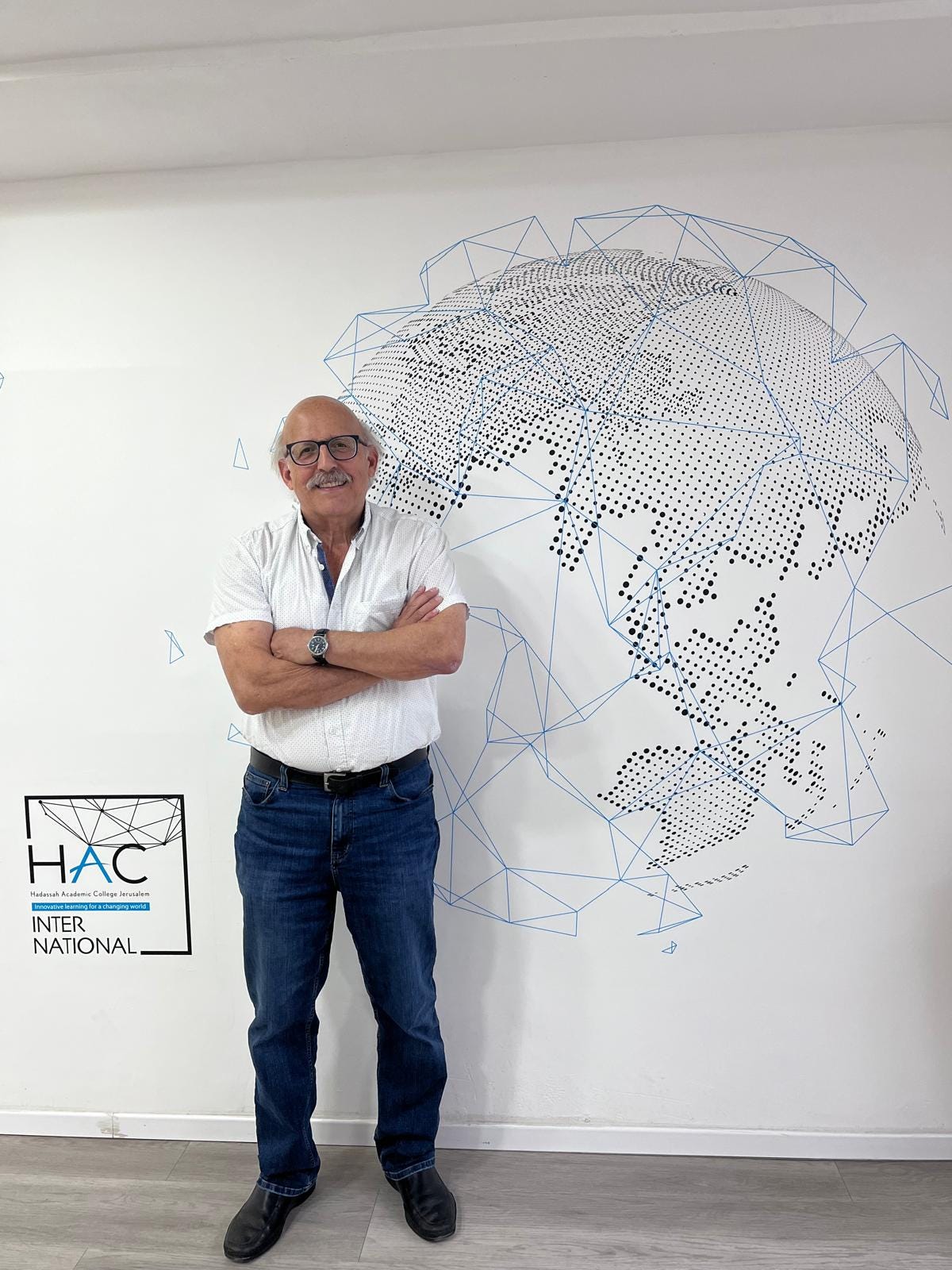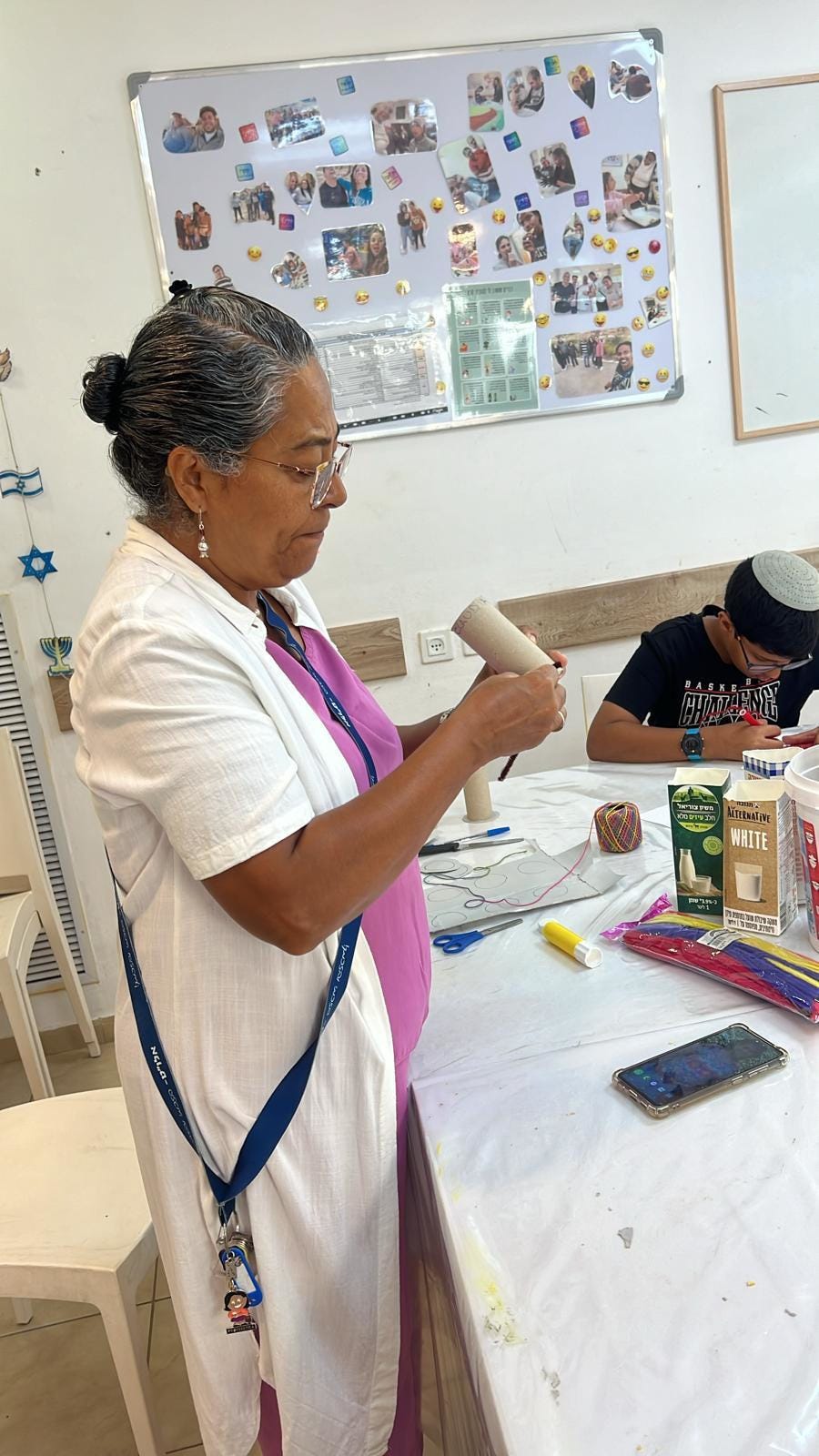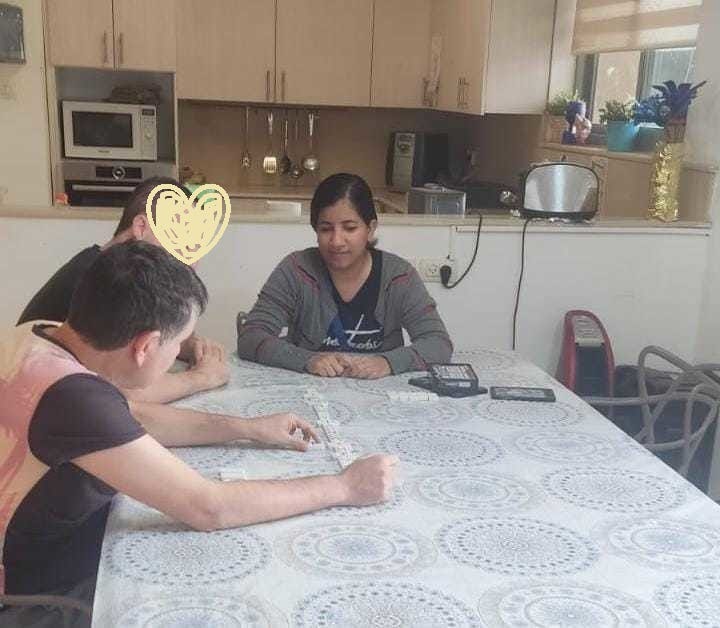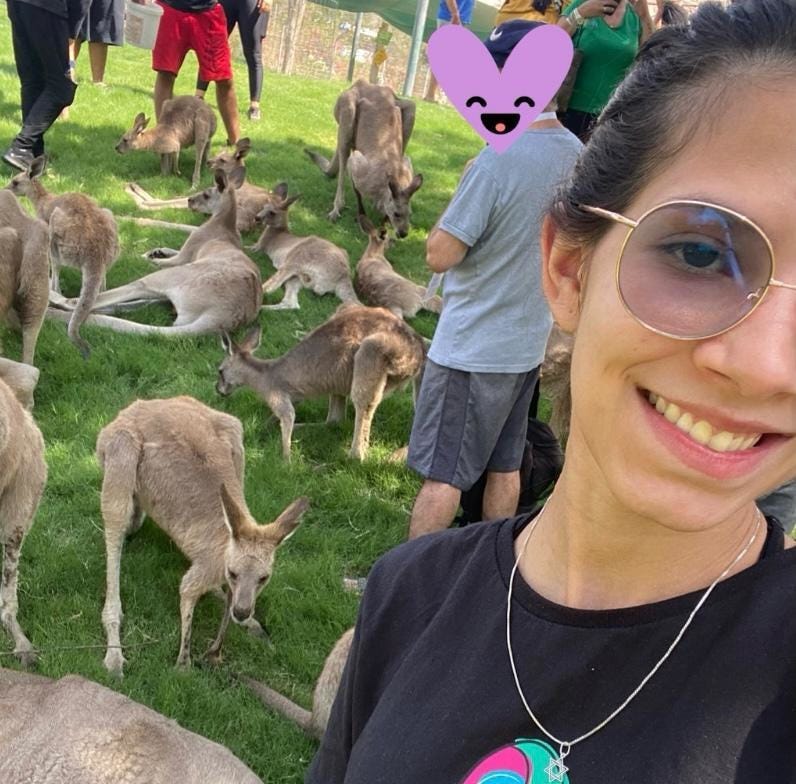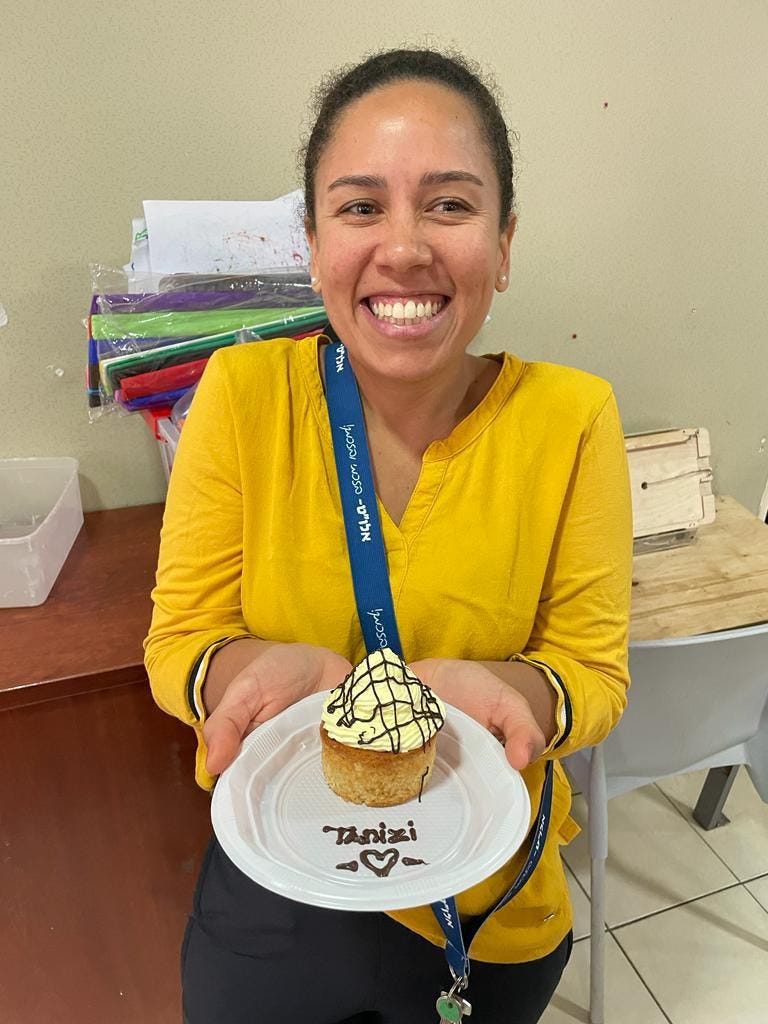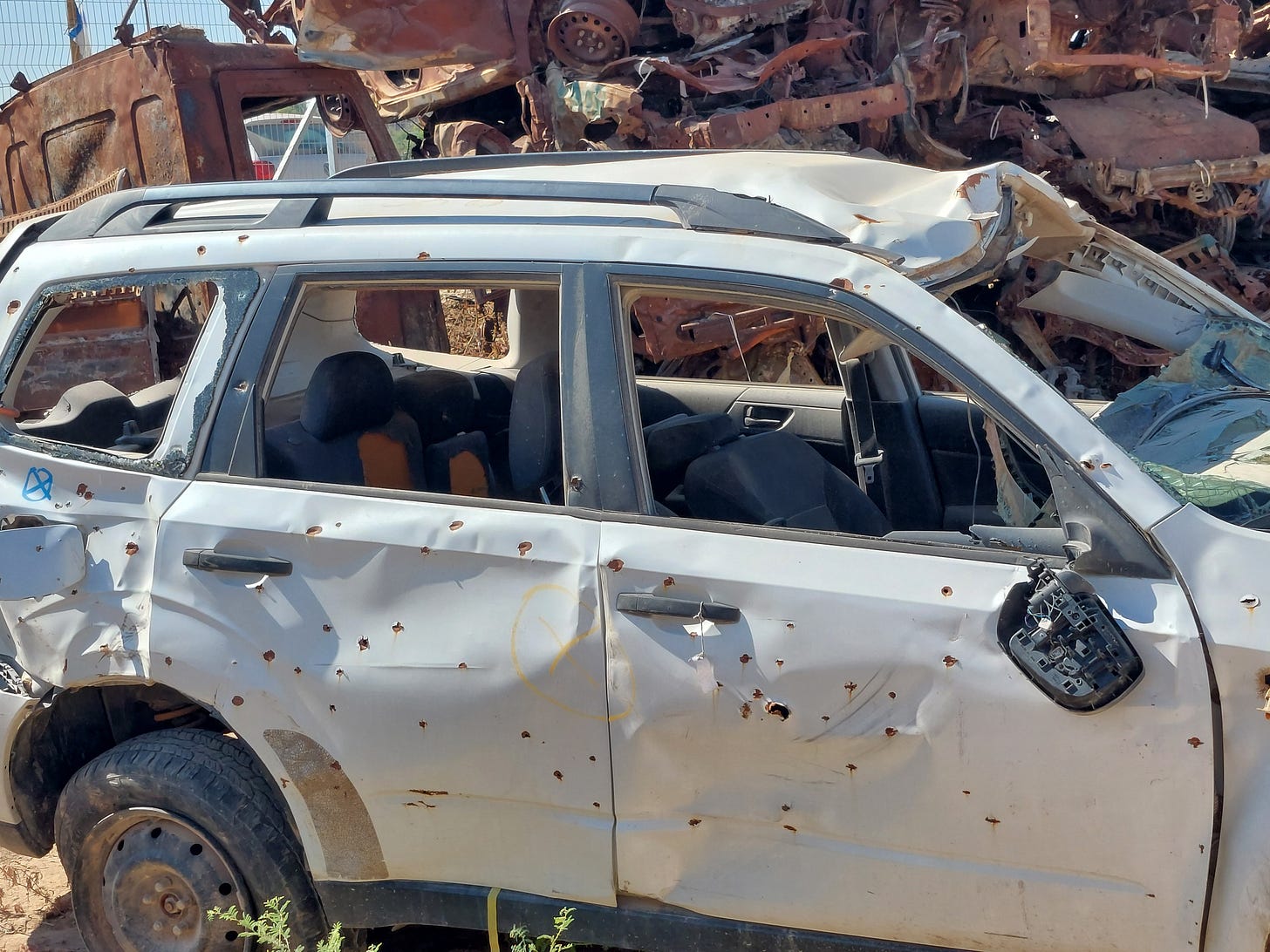Volunteer Tourism in Israel During Swords of Iron War: Five Testimonies
Guest post from Dr Irit Shmuel. Originally published at Tourism's Horizon: Travel for the Millions.
A sudden war affected every aspect of Israeli life, including tourism. According to Peleg Lewi, Foreign Affairs Advisor to the Israeli Tourism Minister, about 15,000 tourists arrived in Israel daily in the first nine months of 2023. This number dropped sharply on October 8, 2023, with only 26 tourists arriving. Presently, the daily count ranges between 4,000 and 5,000 tourists, a mere thirty percent of last year’s numbers. This stark decline is primarily due to the Swords of Iron war, which has significantly impacted tourist inflow.
Swords of Iron war was declared by Israel against Hamas following a surprise attack by the terrorist organization on October 7, 2023, during the Simchat Torah holyday. In that unprecedented assault, thousands of Hamas terrorists breached the Gaza-Israel border, infiltrating civilian areas and IDF bases by vehicle, by foot, and from the air. Concurrently, terrorists in Gaza launched thousands of missiles at Israel. This combined attack resulted in the deaths of over 1,100 civilians, soldiers, and foreign nationals. Additionally, over 5,000 individuals were injured, and around 250 were abducted into Gaza, including soldiers, foreign nationals, children of all ages, and elderly men and women.
Dark Tourism in the Gaza Envelope
The Gaza Envelope (Otef Aza in Hebrew), the Israeli region bordering the Gaza Strip, has become a disaster area, attracting dark tourism—visitors seeking to experience such areas first hand.
A tour of the Otef (as locals call it) can include visits to several harrowing sites. For instance, the Burnt Vehicle Compound at the Tkuma site—a car lot that holds thousands of burnt and ash-covered vehicles riddled with bullet holes and shell damage. Evidence of the horrors is also apparent upon a visit to one of the empty and scarred communities raided by Hamas terrorists, like Kibbutz Be'eri, which stand as silent witnesses to the massacre. Another tragic landmark is the site of the Nova festival, where terrorists murdered and kidnapped festival participants who had gathered to celebrate life through dance.
In Ofakim, one of the region's towns, visitors can see where a fierce battle took place, including the home of Rachel Edri, an Israeli woman who spent 17 hours serving food, tea and cookies to terrorists while they were holding her captive with her husband, occasionally pointing their guns at the couple.
At each stop, visitors are confronted with scenes of shock, grief, pain, and countless unanswered questions.
Volunteer Tourism Dynamics
According to Lewi, before October 7, 2023, Israel’s volunteer tourism sector thrived, with visitors coming in big numbers to show solidarity. They included Jews from the USA and Europe, Evangelical Christians from the USA, and Catholic pilgrims from countries like the Philippines, Indonesia, and Brazil. Evangelical missions were particularly proactive, often organized by pastors who deemed it safe to travel.
During the war, this dynamic shifted. Although the number of volunteering tourists has decreased, there is still a significant influx of solidarity visitors. These include Jews and Evangelical Christians, who continue to support Israel through organized trips and volunteer activities, despite the ongoing war.
While there is no formal governmental campaign for volunteer tourism, private companies continue to organize such trips, particularly for American travelers. They are joined by individuals who come independently on private tours, often on their own initiative and frequently at their own expense. These initiatives, although less prominent than before, still play a role in supporting local communities and maintaining international solidarity.
Volunteering in Israel Amidst War
What compels individuals to abandon their everyday lives and volunteer in Israel, particularly during a time of war? Unlike other conflict zones such as Ukraine, where volunteers face a collapsed state, Israel remains a functioning nation, providing essential services to its citizens even under emergency conditions.
Volunteers are drawn to Israel by a deep connection to the Jewish and Zionist state. Their presence, while not indispensable for the country's basic functioning, offers crucial support, particularly in areas that experience severe human power shortages. This includes sectors like welfare and academia, which have been significantly impacted by the mobilization of workers, staff members, and students into the IDF reserve forces.
These dedicated volunteers serve as a vital auxiliary force, stepping in to support systems strained by privatization and the demands of war. Their contributions ensure that essential services continue to operate, helping to maintain a semblance of normalcy in an extraordinary time.
"Fear doesn't control me. Israel's importance outweighs everything else"
In the midst of the Swords of Iron war, Nathan Schleifer, an American Jew from New York City, has found a way to make a meaningful impact in Israel. Nathan's desire to support the country he has cherished his entire life has led him to utilize his background as a physics professor by teaching mathematics and physics to students at Hadassah Academic College and the Hebrew University in Jerusalem.
Schleifer, who has always been a staunch supporter of Israel, felt a profound need to contribute in a tangible way. "In the past, I donated to organizations like Magen David Adom (the Israeli Red Cross), Friends of the IDF and ZAKA (a search and rescue organization), but I wanted to do more," he says. "With the war affecting so many lives, I knew it was time to step up and help physically."
Leaving behind his wife and two adult children in New York, Schleifer embarked on a solo journey to Israel. His three-week volunteer stint, though his first, is filled with the hope of many returns. "I didn’t come to support from afar, I came to help," he emphasizes. "Being here, interacting face-to-face, and providing hands-on assistance is what I believe in."
Schleifer's connection to Israel runs deep. He has family here and has visited multiple times, once even exploring the country on a motorcycle. "Fear doesn't control me. Israel's importance outweighs everything else," he asserts.
His path to volunteering was paved by connections, including an acquaintance with the president of Hadassah Academic College. His internal drive and sensitivity propel Schleifer to give back, not just materially, but emotionally as well. "Volunteering helps me feel good", he reflects. "It's about making a real difference, being present, and showing solidarity."
From Brazil to Israel: Women Volunteers Make a Difference
Claudia, Cassia, Vitória, and Thanize, who were recruited by IB Social, an international partner of VOIS (Volunteers in Israel), are currently serving with the ALUT organization, which supports individuals with autism.
VOIS is an official program of the Ministry of Welfare and Social Affairs of the State of Israel. It welcomes around 1,000 volunteers from 51 countries annually, placing them in 54 international social service organizations. These volunteers provide assistance in various social centers and assisted living facilities across the country. They help professional teams in caring for underprivileged children and adults, individuals with special needs and disabilities, elderly citizens, and Holocaust survivors. All placements are supervised and funded by Israel’s Welfare Office.
"We appreciate and are grateful to every volunteer who joins VOIS this year," stated social worker Ilana Turevsky Assaf, who works with overseas volunteers. "Their help and support within the welfare system of Israel during this period are essential and irreplaceable. The volunteers provide significant assistance to professional staff and bring high morale, devotion, and compassion to all residents and workers."
Since the October 7th massacre and the ensuing war, the VOIS program has undergone considerable changes. "On the one hand, hundreds of volunteers were evacuated by their states, but new ones arrive every month. On the other hand, we have received thousands of messages and emails of support and volunteer applications. During the last ten months, we have kept the main program open, even though there are fewer volunteers and their stay in Israel is more difficult and less safe," Turevsky Assaf added.
The program’s team also provides daily consultation and support to numerous civil and humanitarian organizations, helping them to manage the thousands of overseas volunteers serving in nearly every sector of Israeli society. "It's our responsibility to welcome every volunteer and provide a protected environment and clear regulations," Turevsky Assaf concluded.
"I don't want to come to Israel only when everything is good"
Claudia Regina Carneiro Vital Teixeira, a 56-year-old Brazilian from Belo Horizonte, Brazil, has made a remarkable journey to Israel during the Swords of Iron war. Teixeira's unwavering love for Israel and her deep-rooted passion for volunteering have driven her to leave her family behind and offer her support in a time of need. Having grown up as a Christian, she is today in a process for Giyur (Jewish conversion).
Teixeira's family, including her youngest son Gabriel, respects her personal choice, although she admits missing them dearly. She finds comfort in her commitment to volunteering and immersing herself in the Hebrew language and other aspects of Israeli culture. Her ties to Israel began in 2014, when she was captivated by the people, the places, and the profound connection she felt with the land she knew from the Bible.
A seasoned tourism professional and English teacher, Teixeira has always had a passion for Israel. Her dream of volunteering in the country faced numerous obstacles, including political issues and the COVID-19 pandemic. In 2023 she finally secured the opportunity to volunteer, only to be delayed once again by the outbreak of the war on October 7th.
But Teixeira refused to be deterred and on November 11th, she received her visa and continued her preparations despite the war. Partnering with ALUT, The Israeli Society for Children and Adults with Autism, she arrived in Be'er Sheva, a city known for its friendly and welcoming community, as she testifies.
Teixeira's dedication to her cause is evident in her work with young moderately functioning autistic people in the Iris Village run by ALUT in Be'er Sheva. She assists with cognitive and domestic duties, contributing to the community in significant ways. Determined to make a meaningful impact, she intends to renew her visa and extend her volunteer activity beyond the original 1-year program.
In Teixeira's own words, "I came to volunteer during the war for three reasons: I have always loved Israel, I feel safe and protected here, and I want to learn more about the Hebrew language. I don't want to come to Israel only when everything is good. If I love something, I want to be with it through thick and thin."
Teixeira did encounter some obstacles, such as communicating with non-English speaking locals, and she struggles with the high temperatures and the difficulty of traveling by public transportation, especially when attempting to visit tourism sites like national parks, which are not served well by public transportation. Yet she reports feeling complete, confident, and happy in Israel, declaring herself a Zionist who stands with Israel against terrorism and injustice.
"This is the time when they need me the most"
Cassia de Araújo Farias (33-year-old), a psychologist from Araguaína, Brazil, has taken an extraordinary step in her life journey by volunteering in Israel during the tumultuous Swords of Iron war. Driven by a lifelong dream to participate in an overseas program and her professional dedication to helping autistic individuals, Farias’s story is one of commitment and a deep sense of duty.
Arriving in Israel on June 2, 2023, Farias began her volunteer work with ALUT in an assisted living facility called Peri House in Ra'anana, where she works with low-functioning autistic youth. "It's amazing how Israelis treat older people with autism. It is very different from what I know in Brazil," she says, reflecting on her experiences and the supportive environment she found in Israel.
Farias's family, while supportive and financially helpful in her temporary move to Israel, is naturally concerned about her stay in an ongoing conflict zone. "Sometimes they get a little worried when they see the news," she admits, but they respect and support her decision to remain in the country.
Her motivation to stay in Israel did not diminish after the war began. "Before I came to Israel, I knew I was coming to a conflict zone, and I knew something would happen. Friends who were here told me this and I also followed the news," Farias explains. Her resolve was tested when the war broke out just four months after her arrival. Farias did not consider leaving. "During the first month of the war, I stayed put in my area, but after three or four months, I returned to normal life and even traveled to Tel Aviv and Jerusalem," she recounts.
Her decision to remain in Israel was influenced by both practical and personal reasons. "Beyond that, this is the time when they need me the most," she says, emphasizing her sense of responsibility to the individuals she helps. Farias also points out the relative safety she feels in Israel compared to her hometown in Brazil, mentioning the security measures and sense of community she experiences daily.
The challenges she mentions include the language barrier, saying that "I live with people who speak more Hebrew and Arabic than English. After one year I can speak basic Hebrew, but learning to read and write has been my biggest challenge." She has also had a hard time adjusting to the Israeli food, which is different and certainly more costly compared to what she was used to at home. In general, she found the cost of living in Israel high, which has put some financial strain on her.
Yet Farias dreams of going beyond volunteering in the country and pursuing a master's degree and a maybe Ph.D. in Israel. "When my visa ends, I want to do a master's in Israel. If I succeed, I will stay here to study, and if not, I will return to visit Israel, which has become my favorite country in the world," she concludes.
"I can share my first-hand experiences"
27 year-old Vitória Lissa Silva França's community service in Israel began over a year ago, driven by a lifelong passion instilled by her family’s teachings about the significance of Israel. Her Christian family in Guarulhos, São Paulo, Brazil, fully supports her mission, even though they miss her. Their encouragement has been a source of strength for França as she navigates the challenges of being far from home during such a turbulent time.
Volunteering at ALUT's Peri House in Ra'anana, França works with adult and aging autistic individuals. When the war broke out, her family sent messages of concern, although they knew she wouldn't return home. "At the beginning of the war, we had a few sirens, about once a week, but it wasn't that bad," she recalls. "At first it was challenging because I didn't know if I could go to the shopping center, fearing a siren might go off. But pretty quickly, I adapted and started to feel more comfortable." It was also hard to deal with her friends and relatives who pressured her to return to Brazil, and concerns about a friend who was serving in the army added to the stress.
But França's deep connection to Israel has only strengthened during her time in the country. "In Israel, if you take the wrong bus, you end up in some random place that has a lot of history. You can feel the Bible everywhere here," she says. The kindness of the people, the rich culture, the incredible food, and the sense of history have all made a lasting impression on her.
When Iran attacked Israel on April 13, 2024, firing 300 missiles and drones that were mostly intercepted, França felt fear but also a sense of resilience. "I was afraid but not panicked because I was in Tel Aviv with my friend. We went to a safe place and returned to our volunteering duties the next day." Her Israeli boyfriend keeps her informed about the ongoing situation, and together, they plan to live in Brazil after her volunteering period ends.
França’s activism for Israel began long before her arrival. In Brazil, she volunteered in the Jewish community, speaking passionately about Israel despite never having visited. "People asked how I could talk about a country I'd never seen. Now, I can show them that I'm here and share my first hand experiences."
"I slept for two weeks with the 'friends' in the residential protected room on the first floor"
Thanize Borges, a 36-year-old woman from Itaberaba in the State of Bahia, Brazil, arrived in Israel just three weeks before the onset of the Swords of Iron war. Despite the harrowing experiences that followed, Borges remains committed to her volunteer work at ALUT's Keren House in Rishon Lezion, where she works with young high and medium-functioning autistic people.
Borges first visited Israel in 2016 as a tourist and fell in love with the country. "I felt that this is my place and that I want to come back and stay here for a longer time. Then I kept praying to return to learn more about the local culture and people. For us as Christians, we teach that this is the Holy Land and that it is a privilege to serve the Israeli nation, to give our time and prayer to the nation in our own way."
Recalling the events of October 7th, Borges shares, "I woke up at five and went for a run. At exactly half past six, I heard the first rockets. There was no one on the street, and I saw someone running once the sirens started. I didn't understand what it was exactly because it was new to me, and I don't know such situations from Brazil."
Living on the second floor of the institution where she volunteers, Borges faced immediate challenges. "In the first few days, I couldn't even go to my apartment because I was there alone. I was very afraid to be on the second floor and hear the siren and not get to the residential protected room on time. So for two weeks I slept with the 'friends' (that is what we call the cognitively disabled individuals we work with) in the residential protected room on the first floor," she recounts.
The fear and uncertainty were compounded by her family's concern back in Brazil. "My father told me to come back because the news they heard in Brazil was so scary. I was so scared the first few days and I thought about going back. In the first week, Brazil sent a rescue plane to the Brazilians who were here. I had the option to return. But on the third day, I decided not to go back. This is my place, and this is where I will be," Borges explains.
Her resolve was deeply influenced by her faith. "My decision was not made only by me but with God's help because my family really freaked out. I prayed to God and asked him, 'God, should I stay in Israel?' Because if I stay, I need to have peace in me, knowing that this is what God wants. I told my family that I know it must scare them, but I also have faith and if God told me to stay, I would stay, since this would be the safe place for me. I decided that this was the safest place for me even though it was in the war."
In addition to her initial sense of compromised safety, Borges was also challenged linguistically, claiming that speaking the local language is important even for fluent English speakers like herself. She was also bothered by the high cost of living, especially food, and the lack of public transportation on Saturdays has also presented considerable difficulty.
Despite these obstacles and the ongoing war, Borges believes in the safety and resilience of Israel. "I think tourists can come to Israel even now. I feel safer in Israel during a war than during a normal time in Brazil. Of course, you have to be careful. You can't go everywhere. But the tourist places are less crowded now. Before the war I visited Jerusalem and it was very busy, but now it's less crowded and I find it more pleasant." Borges also aims to be a voice for Israel. "When I get to Brazil, I will be a voice that tells the truth. Even now, I show the other sides of Israel on my social media even though we are in a time of war."
Originally published at Tourism's Horizon: Travel for the Millions.



